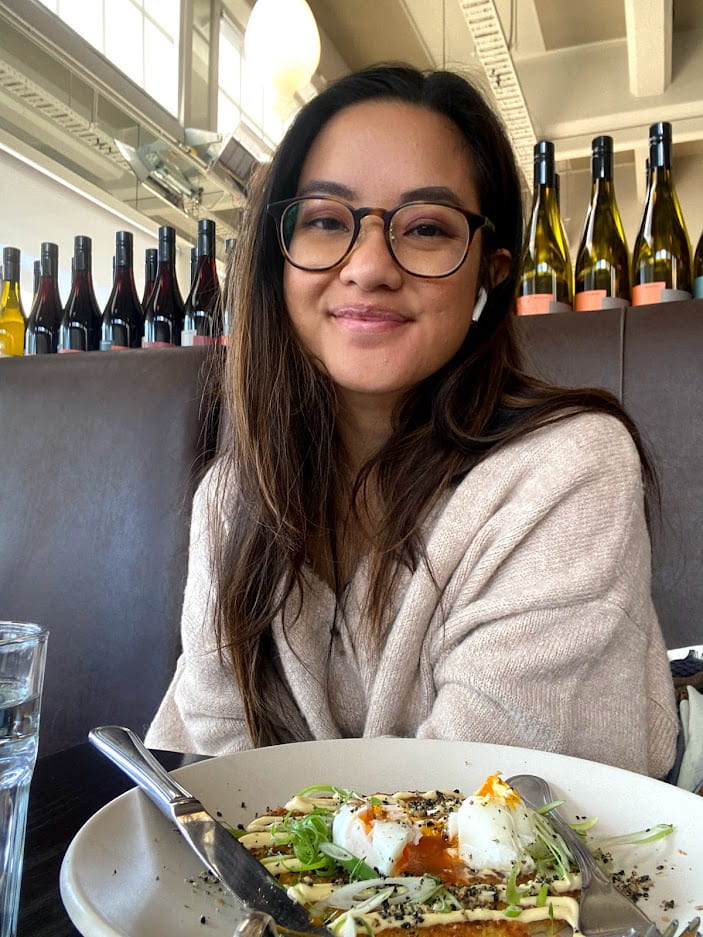Often research students are often asked by their supervisors “so what?” What is the impact of their research and how might it apply to the real world? In this month’s blog, Lovely shares about how she is grappling with the challenges of translating the labour of her research and her position in within a University into something meaningful for Asian youth.
“Am I doing enough?” is a question constantly whirling around my anxious mind. It happens for a variety of reasons, deeply rooted in recovering perfectionism and a desire to make my immigrant parents proud. Lately, I’ve been asking myself “am I doing enough?” when it comes to advocating for the needs of Asian young people here in Aotearoa.
I feel like I fell into studying Asian youth health. It was certainly something I had never considered until starting my PhD. As I crawled through my provisional year, the literature highlighted a shared understanding that 1.5 and second-generation Asian youth experience a variety of challenges, but the conversation stopped there. While the research around the growing mental health need for these young people is starting to emerge, nothing seemed to go further. I knew I was going to be unable to sit and listen to young people’s stories, hear their struggle and pain, and do nothing about it. My PhD became about ensuring these young people had a meaningful voice and advocating for creating systems of support, whatever that looked like.
When I began to reach out to others who were advocating for similar things as me, I eventually found them. I found community organisations, creatives, expressive and confident advocates who seemed to share their opinions and ideas with ease. They seemed to find the whole advocacy thing so much easier than I did, and they were really good at it. They had platforms, they had funding, they had community and they just seemed to have it all sorted. But I didn’t find many (if any) researchers in those spaces.
And suddenly, I was struck by that question “am I doing enough?”
It felt like the PhD wasn’t enough. Undertaking a PhD (especially in the midst of a global pandemic) can be super rewarding, but it’s also super exhausting. When you work within the Ivory Tower as a young woman of colour – imposter syndrome, systemic racism and sexism, financial need and other institutional barriers to success are rife. And there are so many days when the struggle didn’t seem worth it. That the PhD wasn’t enough. That all the hours of data analysis and writing wouldn’t make any difference in the lives of Asian youth. That I was just hiding behind the Ivory Tower, pointing out issues but doing nothing to stop them. It felt like I was going to spend years of my life behind a desk and have nobody listen to me. But at the end of the day, research alone is not enough. And it doesn’t have to be.
What I’m learning about advocacy and making long term systemic change is that it takes a village. Many moving parts are needed to make something happen, research included. Research is needed because we need sound, good quality data that is collected and analysed ethically and rigorously, which honours the voices of those involved. Research is needed to show the disparities Asian youth are facing to advocate for more inclusive policies. The voice of Asian youth is needed in research and it can be used to help make systemic change.
The research road is hard and long. It can be incredibly lonely. But I have heard stories from others who wished there was a focus on Asian youth health in research when they were younger. I have colleagues and friends who are proud that there is a woman of colour sitting in the Ivory Tower, working tirelessly to make a change. And every time I think of the Asian youth in Aotearoa who are going to get the care, support and access to culturally safe services that is desperately needed, and that they deserve – it’s more than worth it.

About the author
Lovely Dizon
l.dizon@auckland.ac.nz
Lovely holds a BHSc(Hons) First Class from the University of Auckland. She is in the final year of PhD candidacy, based in the School of Population Health.
Her research interests include Asian youth health, youth mental health, ethnic identity, and qualitative and mixed methods research methodologies.
She is passionate about amplifying and advocating for greater representation of ethnic minority voices and experiences, creating space for destigmatising conversations around mental health, and improving access to health services.

Awesome piece. You are doing great mahi!